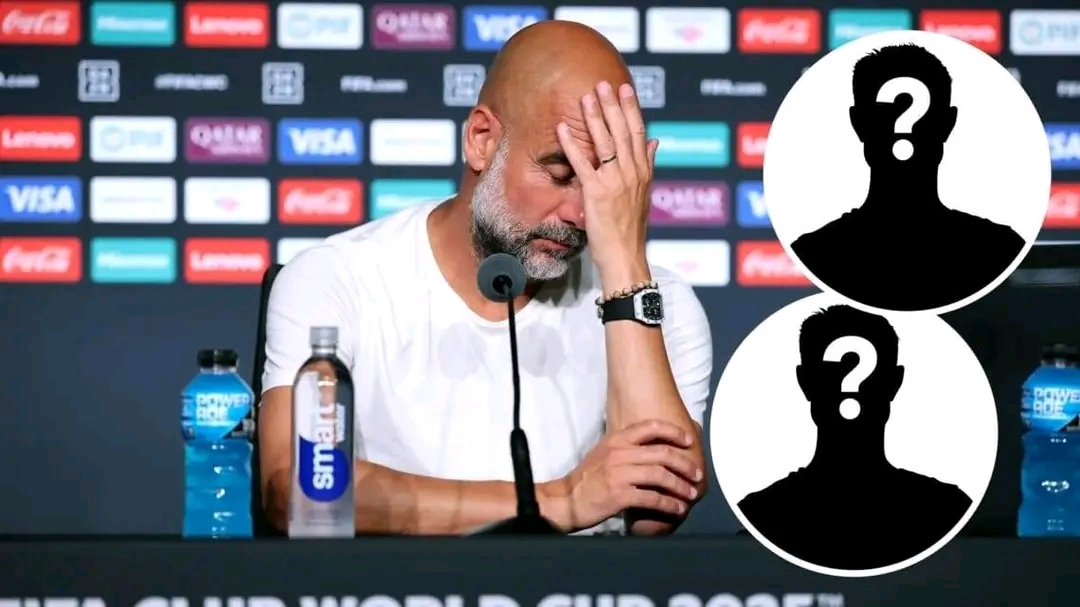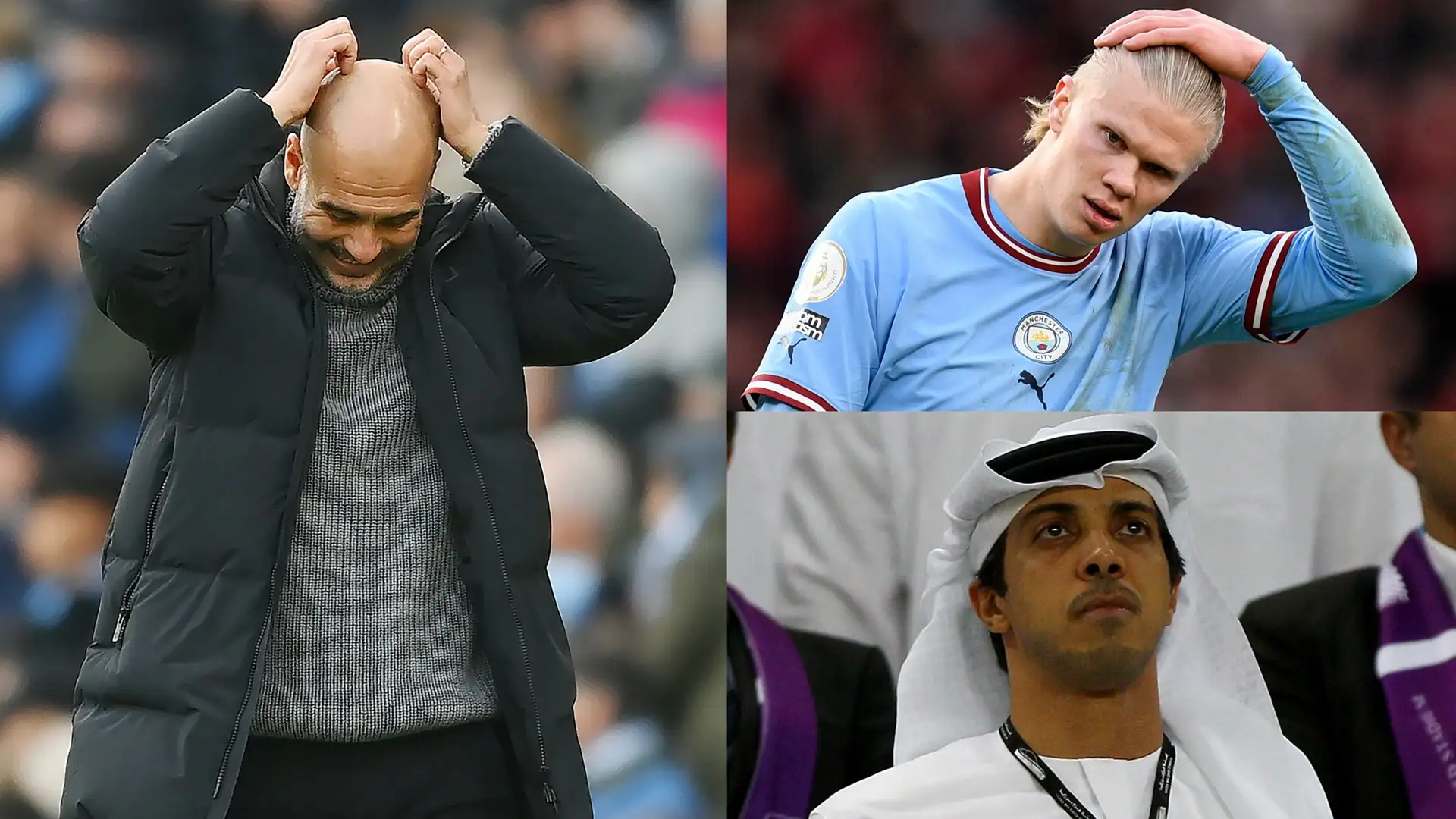Man City Star want to leave the club and join new club

Manchester City stand at a very important crossroads. For years, they have been seen as the dominant force in English football, a team that combines incredible talent, tactical brilliance, and the financial power to outbid almost any rival. Under Pep Guardiola, they have won Premier League titles, domestic cups, and even the coveted Champions League. But despite all this success, there is now a sense of tension and concern as City prepare for the new season. The reason? Their defense is starting to show cracks that could ruin all their plans.
This problem is not new, but it became impossible to ignore after the team’s poor performance in the FIFA Club World Cup. In a shocking result that hurt their reputation, City were knocked out in the Round of 16 by Al-Hilal. For a club used to winning on the biggest stages, this was more than just a loss—it was a warning sign.
The most worrying part of that defeat was not just that City lost, but *how* they lost. They were exposed on the counterattack, unable to stop transitions, and looked disorganized at the back. Even the usually calm and composed Bernardo Silva couldn’t hide his frustration after the match. His post-game comments reflected what many fans, pundits, and even club insiders were thinking: City’s defense simply isn’t good enough.
Pep Guardiola’s entire system depends on controlling possession, moving the ball quickly, and squeezing the life out of opponents by keeping them pinned in their own half. But that approach also leaves space in behind, demanding defenders who are not just good but exceptional. They need to be fast, intelligent, calm under pressure, and capable of reading the game at a very high level. Without these qualities, City’s high-risk, high-reward style collapses.
To fix the problem, City turned to the transfer market in January. They signed two young defenders: Abdukodir Khusanov and Vitor Reis. At first, many fans were excited. It looked like City were planning for the future, investing in young talent who could grow into top-class players under Guardiola’s guidance. But the reality has been much harder.
Khusanov’s case is particularly interesting. The Uzbek defender arrived with plenty of promise but little experience at the highest level. City needed reinforcements urgently, so they threw him in immediately. In ten appearances, he even scored a goal—a moment of joy for him and the fans. But beyond that goal, his performances have been mixed at best. He has shown flashes of talent but also many signs of inexperience: misreading attacks, losing his marker, or giving the ball away under pressure.
It’s easy to forget that he’s still very young. At 22, he is learning to adapt not just to English football’s pace and physicality but also to Guardiola’s famously demanding tactical system. Guardiola doesn’t just want defenders to defend. He wants them to be playmakers, starting attacks from the back with clever passes, while also being able to snuff out counterattacks at a moment’s notice. It’s a huge ask, especially for someone who has never played at this level before.
Vitor Reis faces a different problem. Unlike Khusanov, he has barely played at all. With only four appearances and just over 200 minutes of game time, it’s been almost impossible for him to show what he can do. Fans are already asking: Was this signing a waste of money? Is he even ready for the Premier League?
Reis’s limited minutes aren’t just bad luck. City have a deep squad, and competition for places is fierce. Guardiola simply cannot afford to hand out minutes to players who aren’t 100% ready, especially with so much pressure to win every game. But the club insists they believe in Reis’s potential. Ederson, City’s first-choice goalkeeper and fellow Brazilian, even publicly praised Reis, saying he could one day be one of the best defenders in the world.
That is high praise, but words alone don’t win titles. For Reis, the challenge is clear: he needs to show in training that he’s ready, so that when his chance comes, he can take it. Otherwise, he risks becoming another talented youngster who couldn’t quite make the step up.
Not everyone is convinced these two will succeed. One of the harshest critics has been Steve Nicol, a former Liverpool player and now an ESPN pundit. He didn’t mince words, saying Khusanov and Reis “may never be good enough” for Manchester City. It was a brutal verdict but one that reflects a wider debate among football analysts.
Nicol’s criticism isn’t just about the two players themselves. It also raises questions about City’s strategy. Why did they buy two raw, inexperienced defenders when they need reliable performances right now? Did the club plan well enough? Was this a calculated risk that is now backfiring?
One of the biggest issues City have faced this season is their failure to control transitions. In Guardiola’s system, this is fatal. When City lose the ball high up the pitch, they have to be able to win it back immediately or else be organized enough to slow down the opponent’s counterattack. Without that, teams can slice through them with just a few passes.
In the past, City’s best defenders excelled at this. Vincent Kompany was a rock who could read the game perfectly. Ruben Dias brought leadership and organization when he arrived. But with injuries, aging players, and the failure of new signings to settle, the current defense looks vulnerable.
To make things even more complicated, Guardiola has sometimes been forced to use players out of position. Matheus Nunes, a midfielder by trade, was used at right-back at times. This kind of improvisation might work against weaker teams but is dangerous against strong opposition. Nicol pointed to this as proof that City’s defensive recruitment has been messy and lacking a clear plan.
City’s leadership, however, doesn’t see it that way. Chairman Khaldoon Al Mubarak has been very public about his belief in the club’s vision. He has defended the decision to sign Khusanov and Reis, saying they are long-term investments who need time. The club argues that developing young defenders is always hard. It takes years for them to learn the positioning, awareness, and calmness under pressure that top teams demand.
Guardiola himself has a reputation for being tough but fair with young players. He has developed stars like Joshua Kimmich and Phil Foden by pushing them hard in training and then trusting them when they’re ready. City believe that keeping Khusanov and Reis at the club, instead of loaning them out, will help them learn Guardiola’s system faster. They want them to train every day with world-class teammates and absorb the philosophy directly from the coaching staff.
But there is a risk here. Without regular game time, young players can stagnate. They need the experience of real competition, the pressure of making split-second decisions in front of thousands of fans. Guardiola and his team will have to manage this carefully, finding ways to give them minutes while still keeping the team competitive.
Beyond these individual cases, the debate about Khusanov and Reis is really a debate about Manchester City’s entire approach to building their squad. The club is famous for its incredible spending power. They can afford almost any player they want. Yet instead of splashing out on proven defenders, they chose to take a gamble on potential.















